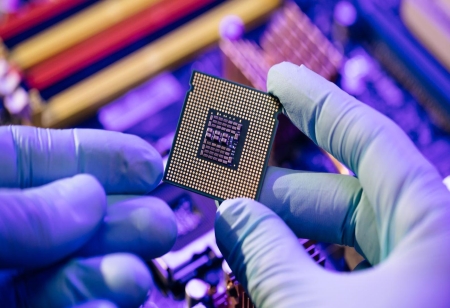
Taiwan's Chip Manufacturing is looking to expand in Japan to take advantage of a push by Asia's second biggest economy to rebuild its domestic semiconductor industry.
Hsieh Yong-fen, founding chair and CEO of Material Analysis Technology, told that her company is working to open its second analysis laboratory in Kyushu, southwestern Japan, by the end of 2023 and also plans to expand its first lab, in Nagoya, to capture growing demand for locally made chips for automobiles and electronics.
MA-Tek, as it is commonly known, assists clients in troubleshooting issues in chip development and production by analysing various chipmaking materials and chip surfaces, earning the company the nickname "chip doctor" in Taiwan. As chip development becomes more complex, such troubleshooting is becoming increasingly important to ensure smooth production. Among its clients are global chipmakers such as Taiwan Semiconductor Manufacturing Co., Qualcomm, Nvidia, and NXP.
"I really think Japan has a good chance in this era when many countries want to rebuild their chip manufacturing supply chains. ... Many industry executives think similarly," Hsieh told . "It has a very good foundation of vital chipmaking materials and manufacturing know-how."
Japan, like the United States, China, and other major economies, is attempting to bring critical semiconductor production onshore in order to build a competitive chipmaking industry. In a recent victory for Tokyo, TSMC has agreed to build a chip plant in Kyushu with Sony, with full production set to begin in 2025.
Hsieh is undecided, however, about opening a facility in the U.S., where TSMC is building a $40 billion plant in Arizona.
"We are still reviewing and evaluating whether we are going to the U.S.," she said. "But currently, we do see some challenges, including much higher costs, a lack of easy access to enough talent, and management in a very different culture."
Hsieh, Taiwan's first female Ph.D. in material sciences, founded MA-Tek in 2002 and has witnessed the rise of Taiwan's chip industry -- now the world's second biggest by revenue, behind only that of the U.S.
According to her, Taiwan has become Asia's leading chip economy thanks largely to its dense cluster of producers and suppliers.
Every time when we have foreign guests come to visit us, I ask our sales managers to take them to the nearby Hsinchu Science Park, where so many chipmakers have their headquarters and even production sites," Hsieh said. "In China, a supplier's representative might only be able to visit one client a day because of the long distances involved, but in Taiwan, they could easily visit five clients a day. That definitely creates a network with great efficiency."
Taiwan's tech prowess, in turn, gives the island strategic importance and thus protection, Hsieh said.
"Our economic strength gives us defense importance. ... Otherwise, without the flagship tech industry, Taiwan is just a tiny island and no one would care about us," Hsieh said. "Taiwan should leverage its own strength more."
The CEO also sees growing opportunities in China's chip market, despite a U.S. clampdown on Beijing's semiconductor ambitions.
MA-Tek operates labs in the Chinese cities of Shanghai, Xiamen and Shenzhen.
We use cookies to ensure you get the best experience on our website. Read more...